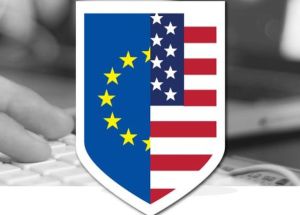EU – Baltic States, Legislation, Technology, USA
International Internet Magazine. Baltic States news & analytics
Thursday, 25.04.2024, 08:44
EU and US reach new data-sharing agreement
 Print version
Print version |
|---|
Andrus Ansip, the European Commissioner responsible for the digital single market and also the former prime minister of Estonia, said Tuesday the new framework will ensure the "right checks and balances" for citizens.
He said the new mechanism, which will be known as EU-US Privacy Shield is "robust and offers significant improvements" to previous schemes.
The two sides have been trying to forge an agreement since October, when Europe's top court struck down the previous pact in existence since 2000 – known as Safe Harbor – amid concerns over the rights of Europeans' data stored by companies in the U.S. and their potential exposure to surveillance from U.S. intelligence agencies.
"This solution is much better than the one we had in the year 2000," he said.
For the first time, Ansip said the EU had received "detailed assurances" on the safeguards and limitations of U.S. surveillance programs.
Under the terms of the new deal, Ansip said there will be an annual joint review on the new data-sharing pact and that the U.S. will have a new official responsible for following up on complaints upon referral from EU data protection officers.
In its October decision, the Court declared the Safe Harbor pact was invalid because it did not adequately protect European consumers where their data was stored in the U.S., in light of the spying revelations made by Edward Snowden, a former contractor at the U.S.'s National Security Agency. Snowden's revelations had prompted the complaint to the Court from an Austrian law student, Max Schrems.
The pact, which had been used by 4,500 companies, had effectively allowed the easy transfer of data from the EU to the U.S. by having U.S. companies promise to provide privacy protections equivalent to those in the EU. The EU court's ruling that the pact was invalid opened up the possibility that data privacy officers across the 28-country EU might be inundated by complaints by consumers worried about their privacy, making it hugely difficult – and potentially expensive – for the likes of Apple, Facebook and Google to do business.
Vera Jourova, the European Commissioner for Justice, said she's confident that the new arrangements will withstand any future court challenges as the discussions used the Court ruling to help "in the formulation of the new structure."
She said the first review should take place next year.








 «The Baltic Course» Is Sold and Stays in Business!
«The Baltic Course» Is Sold and Stays in Business!

